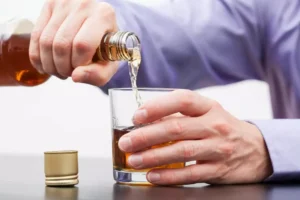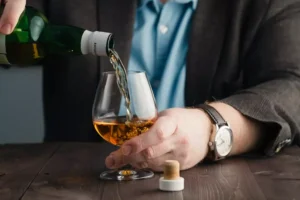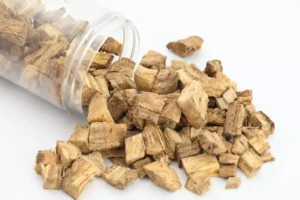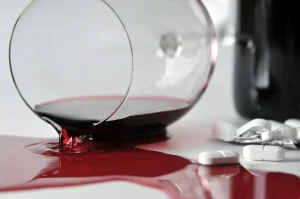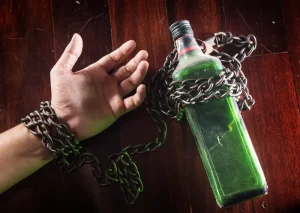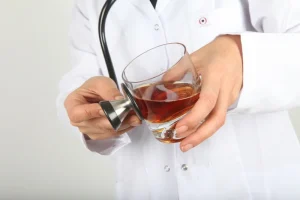Treatment and addiction recovery blog
How to Live with an Alcoholic
Alcoholism is a terrible disease. It plagues the people that have to live with it, but it also seriously harms the relationships that alcoholic individuals have. These relationships can be stressed even further if alcoholism enters the picture after a serious commitment has been made. In a complicated relationship such as this, it’s critical to realize that the cause of their AUD is not you, nor do you possess the ability to completely remedy them. You, as a support system for them, can take certain steps to aid in the process but must also be mindful of your own situation
Does Alcohol Make You Gain Weight
Alcohol, like everything that you put in your body, has an effect on your body. Often, people will ask if consuming any amount of alcohol will contribute to weight gain. Like most questions related to alcohol, the answer is a complicated “yes.” So let’s get into exactly what makes this a complicated question and what exactly contributes to weight gain when consuming alcohol. Alcohol Has Lots of Calories This might seem obvious, but it’s true. Alcohol will make you gain weight just because it has calories in it. The type of alcohol will affect the amount of calories, but other
Is Alcoholism a Mental Illness?
In order to answer this question, we need to first define mental illness, the broadness of the entire claim, then determine if alcoholism fits within those set categories. In short, it is considered a mental illness, but one with specific characteristics. Statistics show that 1 in 5 adults in the U.S. experience mental illness, with a troubling increase in those numbers for adolescence. The current DSM-5 which is used to categorize mental illness and help determine if one is suffering from a specific mental illness categorizes Alcohol Use Disorder (AUD) and Substance Use Disorder (SUD) as mental disorders. Alcohol Use
Alcoholism in Teens and Its Risks
Though teens aren’t legally allowed to drink alcohol in the U.S., that doesn’t stop many adolescents from trying their first sip for one reason or another and not being able to put the bottle down after that. Alcohol is the most pervasive drug in the world, and as such it infects all parts of our society including our children. Whether teens are exposed to alcohol through their parents or from friends at school, the unfortunate fact of the matter is that unless a teen is living on a deserted island with their family, they will be exposed to alcohol. In
What Is Alcoholism-Caused Wet Brain?
Wernicke-Korsakoff syndrome (WKS), known commonly as “Wet Brain” is a syndrome that affects the brain due to specific imbalances in the brain. The Wernicke-Korsakoff syndrome is a very dangerous condition that can lead to permanent muscle damage, chronic confusion, and at worst, hallucinations. Below we will go over what exactly is Wernicke-Korsakoff syndrome, its specific causes, how alcohol relates to wet brain, the treatments that can be done, and how important it is to recognize the symptoms before they get out of control and cause permanent damage. Wet Brain: a Quick Summary The Wernicke-Korsakoff syndrome (WKS) is a life-threatening condition
Myths About Alcoholism
While alcoholism is better studied than it ever has been in the past, there are still many prevailing myths about alcoholism that infest much of our culture. These misconceptions can cause people to make uneducated decisions and, frankly, put themselves and their health at permanent risk. Let’s debunk some of these myths and get the truth out there so you and your circle can stay safe and healthy. Let’s get started! Myth: Drinking infrequently (but still regularly) does not cause any harm to your body Many people will limit themselves to only drinking on weekends. While this is a good
Can Kudzu Help with Alcohol Addiction?
For many, alcoholism is a disease that can feel impossible to overcome. Untold numbers of people have suffered at the hands of a drinking problem, the drinkers themselves and their loved ones feel the effects of alcohol abuse. The damages wrought by this addiction are incalculable. While many are suffering from addiction have tried all sorts of resources and treatments to overcome their alcoholism, the journey remains a difficult one and too often feels utterly hopeless. But there’s always help. Plenty of treatment options is available in the fight against alcoholism, with ongoing research in the field led by intrepid
What Is an Alcoholic Nose?
Alcoholic Nose is a term used to describe a skin disorder characterized by an uneven, puffy, and red appearance of the cheeks and nose. However, there has been a misconception that alcohol abuse is responsible for this skin condition over the years. This has made more individuals ashamed to seek treatment as some people erroneously tagged them “alcoholics”. It is crucial to note that alcohol abuse is not the root cause of this skin condition, and this article will address the misconception and explain the reasons behind this disorder. Causes of rhinophyma (Alcoholic Nose) Rhinophyma is a Greek word for
How Alcoholism is Linked to Anger
We all know the picture; two grown men are throwing it down at the pub after a long night of drinking and merriment or, even worse, the physical abuse stereotype of having alcoholics as fathers who come home to their family angry after a night out drinking. It begs to ask whether alcohol somehow makes people more furious, more likely to abuse others, or are they just naturally angry people who have a drinking habit on the side? What is the connection between alcoholics being angry, and why are people who drink more likely to be seen angrier with the
10 Major Physical Signs of Alcoholism
Alcoholism is a word used to describe a condition where a person cannot control their alcohol intake. This condition is also known as Alcohol Use Disorder (AUD). Persons who have this disorder are addicted to alcohol and can hardly stop drinking. The addiction makes their craving for alcohol hard to ignore. Having a beer or glass of wine is an excellent way to unwind after a long day for several people. It is also customary to head into a bar for drinks to celebrate with friends or have a chill weekend. Now the question is, does occasional drinking make you
The Connection between Narcissism and Alcohol Abuse
A narcissistic personality disorder is also an illness that has been linked with alcohol over time. However, alcoholism often makes individuals display narcissistic behaviors in some cases. Most of them usually exhibit traits such as defensiveness, arrogance, and selfishness. However, it is important to note that not all alcoholics are narcissists and not all narcissists are alcoholics. Most of these attributes mentioned above are usually seen in narcissists. People suffering from NPD have a higher chance of abusing alcohol. What does NPD Mean? It is an ailment whereby an individual has a bloated sense of vanity, and it is a
Alcohol and Anger: Causes, Dangers, How to Help
Nearly everyone has experienced someone with a drinking problem. While not all those with a drinking problem are mean, it often seems as though angry alcoholics are more common than you’d think. Disproportionately angry, perhaps. It might not be that angry people are often alcoholics, but it could be that alcoholism causes anger in some people. AUD or alcohol use disorder is a challenging disorder to live with. Once one has it, it’s difficult to shake, and it affects everyone around the individual. People with AUD often have difficulties controlling their emotions. This means that those with AUD are often
Reasons to Stay Sober
The sober life is never easy, especially if you’ve had personal experience with drugs or some types of alcohol before. Trying to get and maintain sobriety is often one of the hardest life changing events ever attempted, however the payoff at the end will be more worth it than one can ever imagine. Nobody’s sobriety journey is the same, everyone attempts sobriety and begins the process in the same way. Knowing yourself and finding out what makes you tick is key in overcoming your struggles and getting sober. At times, it’s easy to become discouraged. Sobriety isn’t easy, as it’s
Sober Living
Sober living is a lifestyle, but it’s not only that. It’s a place for individuals to go and live in a community of like-minded individuals and live their lives free of what used to chain them. People can choose to live in a sober living facility for a myriad of reasons. Maybe they were addicts before and want to get and remain clean, and maybe they know how tempting alcohol or drugs are for them and want to stay as far away as they can from them. Whatever the reason, sober living is a great way to live and build
Denial as an Alcoholism Symptom
Alcoholics do not often call themselves alcoholics, and try to deny problems associated with their drinking altogether. Denying drinking negatively affects one’s life is one of the first steps down the descent of alcoholism. Once honesty with oneself and loved ones regarding substance use is lost, it is near-inevitable to be grasped by the clutches of a full-blown addiction. There are a number of common behaviors that alcoholics exhibit. It is important to take an honest view of oneself or your loved one to determine if behaviors masking alcoholism are present. These justifications or actions can keep an alcoholic denying





